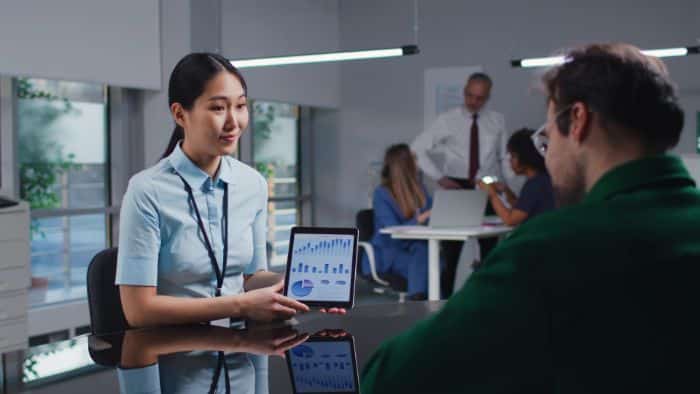Analyzing the Impact of Prior Authorization Procedures | Insights
Delve into analyzing the impact of prior authorization procedures and their impact on healthcare. Discover how these processes affect efficiency, costs, and patient outcomes. Read more to uncover key insights and future trends.

If you’re looking for information on how to speed up prior authorization for medication, consider leveraging electronic prior authorization (ePA) systems. These systems streamline the process by automating requests and approvals, reducing the need for manual paperwork and phone calls. Additionally, ensuring that all necessary documentation is complete and accurate before submission can prevent delays. Engaging with payer-specific portals and staying updated on their requirements can also expedite the process.
Let’s start!
Table of Contents
How Do Prior Authorization Procedures Affect Healthcare Outcomes?

Prior authorization procedures are crucial in healthcare management, where providers must seek approval from insurance companies before delivering treatments or services. These steps are put in place to ensure patients receive care and avoid expenses like repeated tests or nonessential procedures. However, concerns about how these protocols impact care and operational efficiency have been rising. This article will delve into these viewpoints surrounding authorization processes and their effects on healthcare delivery. We will also explore trends in the industry and potential solutions for enhancing these procedures to manage costs while prioritizing patient care. This analysis is focused on providing insights into how improvements in the authorization process can enhance efficiency within the healthcare system, benefiting all parties involved.
This report examines the state of prior authorization procedures and offers suggestions for improving these protocols. Its goal is to shed light on the importance of authorizations and contribute to efforts to create a more efficient and effective healthcare system. Let’s explore how we can shift perspectives on these processes from being seen as evil to recognized as an element in delivering quality patient care.
The impact of authorizations on healthcare delivery efficiency is significant. Prior authorizations play a role in healthcare delivery by serving as both a safeguard and a potential bottleneck. Let’s delve deeper into how we can enhance efficiency in this aspect of healthcare management and ultimately improve outcomes by unlocking the full potential of prior authorizations within our healthcare system. Let’s begin our exploration! On one side, it ensures that recommended treatments or medications are deemed essential and covered by the patient’s insurance policy, thereby preventing expenses and supporting evidence-based care.
Conversely, the process can be time-intensive, involving a lot of paperwork and interactions between healthcare providers and insurance firms. This can result in treatment delays, added tasks for staff, and potential frustration for patients awaiting approval for vital medical interventions. These conflicting effects make prior authorization a controversial aspect of the healthcare system, sparking discussions about its efficiency in balancing cost management with patient care.
The advantages and drawbacks of simplifying authorization procedures for patients and insurers
Simplifying authorization procedures can present both opportunities and challenges for patients and insurers. On the one hand, it has the potential to speed up access to medical treatments, lessen administrative burdens, and enhance overall patient contentment. Prompt authorizations guarantee care, leading to health outcomes; for insurers, streamlined processes can reduce expenses. It can also lower the chances of approving unnecessary or unsuitable treatments. However, there are risks involved, such as oversights due to reduced scrutiny that might result in approving procedures, thus escalating healthcare costs.
Furthermore, there is a concern that improving efficiency in the process could put data security at risk if the simplified measures are not adequately safeguarded against cyber threats. Simplifying authorization procedures may also lead to choices for patients as some insurance companies only approve specific treatments or providers restrict their options. While the advantages of streamlining authorization processes are evident, assessing and mitigating potential risks is essential to ensure that patient and insurer needs are effectively and securely met. Therefore, it is necessary to balance efficiency and safety to maximize benefits for all parties involved in the healthcare system.
I'm very thankful for Portiva who I know is looking after my practice while I'm gone the virtual assistants can manage prescription refills, documents they can triage patients and just kind of answer administrative questions and they can handle a lot on their own. But also, they're very good about contacting me if there's any emergency or anything I need to attend to. So I'm very thankful for Portiva they can help almost any provider almost anywhere and it really allows for some good work-life balance as I'm getting to experience right now at my family farm so I'm very thankful for Portiva and I'm very happy to use their services"

Board Certified Family Medicine Physician

Portiva's Virtual Medical Assistant - I have all the support I need. There's somebody checking my email, any patient messages. Patients are still able to schedule and handle any scheduling issues and any kind of billing that needs to still go through. Portiva hands handles it all for me. I have support i have somebody that I can access 24/7 pretty much. It's all very seamless. If somebody has an emergency or needs a medication called in. I know that the va's at portiva will handle that for me.

Board Certified Family Medicine Physician

In summary

Therefore, while prior approval is crucial for controlling costs and maintaining quality standards, it’s essential to ensure that these processes align with the needs of patients and healthcare providers to enhance healthcare effectiveness truly. This means that policymakers and key players should review and adjust approval processes using data-driven insights to strike a balance between cost reduction and timely access to high-quality care. In essence, efficiency can be achieved when prior authorization is seen as a process that adapts to the changing landscape of healthcare delivery. Thus, ongoing evaluation of the impact of authorization procedures and making modifications are essential for optimizing efficiency in healthcare systems.
To learn more about prior authorization process that can enhance your medical practice. Discover more about Portiva and unlock a world of possibilities by visiting our homepage today!
- Importance of transparency in healthcare pre-approval
- Prior authorization in patient care services
- Why reviewing prior authorization policies is critical
- How prior authorization impacts patient outcomes
- Prior authorization policy enhancements
- Assisting patients with prior authorization
- Prior authorization processes
- Managing patient rights in preauthorization processes
- Medical prior authorization policy changes
- Patient guide to navigating prior authorization
- True cost of prior authorization for patients and healthcare systems
- Challenges of implementing precertification services
- Strategies to incorporate prior authorization
- Optimize the use of prior authorization technology
- Accomplishing the efficient prior authorization
- Preauthorization guidelines for healthcare providers
- The implications of prior authorization on industry
- Enhancing private practices with outsourcing precertification


